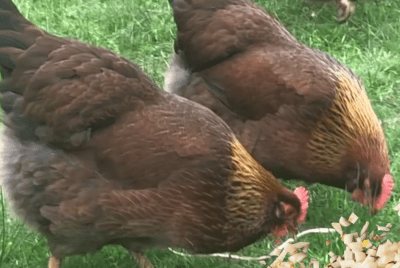Do Predator-Proof Latches Really Keep Your Chickens Safe?
With predators lurking around every corner, keeping your chickens safe is a top priority for poultry owners. People often tout the use of predator-proof latches on chicken coops and runs as a solution to keep these beloved birds out of harm’s way. But do these latches truly provide the promised level of security? Let’s investigate into the effectiveness of predator-proof latches and whether they are a worthwhile investment for ensuring the safety of your flock.
Key Takeaways:
- Predator-proof latches are effective: These latches are designed to keep predators such as raccoons, foxes, and even bears out of your chicken coop, helping to protect your flock from harm.
- Proper installation is key: Ensuring that the predator-proof latch is installed correctly and securely is crucial in maximizing its effectiveness.
- Regular maintenance is important: Checking the latch regularly for any signs of wear and tear, and ensuring it is still functioning properly, is important for keeping your chickens safe.
- Consider additional security measures: While predator-proof latches are a great deterrent, combining them with other security measures such as motion sensor lights or electric fencing can provide added protection.
- Peace of mind: Investing in predator-proof latches can give you peace of mind knowing that your chickens are safe and secure, even when you’re not around to watch over them.
Understanding Predator-Proof Latches
Clearly, ensuring the safety of your flock is a top priority for any chicken owner. One crucial aspect of protecting your chickens from predators is having secure latches on their coop.
What Are Predator-Proof Latches?
To keep your chickens safe, manufacturers specially design predator-proof latches as mechanisms that unwanted guests like raccoons, foxes, or even bears find difficult to manipulate. These latches are built to be sturdy and secure, preventing predators from accessing the coop and harming your feathered friends.
How Do They Work?
They rely on intricate mechanisms that are challenging for predators to figure out. Predator-proof latches typically involve combinations of sliding bolts, locks, and even advanced systems that require human-like dexterity to open. These latches are strategically placed on coop doors and windows, ensuring that only you and your trusted helpers can access the coop.
Assessing Latch Effectiveness
Common Predators and Their Tactics
One of the key factors to consider when assessing the effectiveness of predator-proof latches is understanding the common predators and their tactics. Predators such as foxes, raccoons, weasels, snakes, and hawks each have different ways of trying to access your chickens. Foxes may dig under fences, raccoons can unlock simple latches, weasels can squeeze through small openings, snakes can slither into coops, and hawks may swoop down from above.
Matching Latches with Predator Types
For optimal security, it is important to match the types of predator-proof latches with the specific predators you are dealing with in your area. Different latches such as padlocks, sliding bolts, carabiner clips, gravity latches, and keyed entry locks provide varying levels of protection. Thou should choose a latch that will effectively deter the primary threats to your flock.
| Predator | Matching Latch |
| Foxes | Padlocks |
| Raccoons | Sliding bolts |
| Weasels | Carabiner clips |
| Snakes | Gravity latches |
| Hawks | Keyed entry locks |
Beyond Latches: Comprehensive Protection Strategies
The Role of Secure Coop Construction
For comprehensive protection of your chickens, a secure coop construction is vital. This includes using sturdy materials, such as heavy-duty wood or metal, and sealing all seams tightly to prevent entry by predators.
Additional Safety Measures
To further safeguard your feathered friends, consider installing hardware cloth around the perimeter of the coop and run. This wire mesh is strong enough to withstand attempted breaches by predators like raccoons or foxes.
Plus, don’t forget to reinforce the roof of the coop with strong materials like metal or double layers of thick plywood. Predators like hawks or owls can pose a threat from above, so it’s important to securely protect this vulnerable area.
Summing up
Taking this into account, predator-proof latches are a crucial addition to any chicken coop. While they may not guarantee 100% protection, investing in high-quality, secure latches can significantly reduce the risk of predators accessing your flock. With the right precautions and maintenance, such latches can offer peace of mind and keep your chickens safe and sound.
FAQ
Q: What are predator-proof (PP) latches?
A. Specially designed latches or locks make it difficult for predators like raccoons, foxes, or dogs to open them. People commonly use these on chicken coops to protect chickens from harm.
Q: Do predator-proof latches really keep chickens safe?
A: Yes, these latches are highly effective in keeping chickens safe from predators. Designers make these latches sturdy and difficult for predators to manipulate, adding an extra layer of security for your chickens.
Q: How do predator-proof latches work?
A. These latches work by using mechanisms that are challenging for predators to open. Ones such as sliding bolts, carabiner clips, or even combination locks. These latches are often placed on doors or entrances to chicken coops to prevent predators from gaining access.
Q: What are some common types of predator-proof latches?
A: Some common types of PP latches include slide bolt latches, barrel bolt latches, padlocks, carabiner clips, and combination locks. These latches are designed to be tough for predators to open, ensuring the safety of your chickens.
Q: Are PP latches worth the investment?
A. Yes. Investing in these latches is definitely worth it if you want to keep your chickens safe from potential predators. These latches provide peace of mind. Knowing your coop is secure and an help prevent costly losses from predator attacks is a big plus!
7 Forbidden Foods For Chickens
Lavender Calms Laying Hens and Repels Pests
Benefits of Marigolds In Your Coop Environment
7 Herbs For Natural Chicken Health Remedies
Top 6 Herbs to Grow for your Chickens




